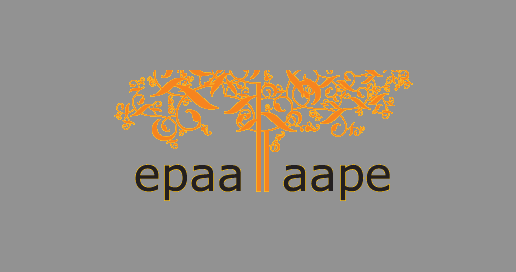I just received an email from the online peer-reviewed journal Education Policy Analysis Archives (EPAA). The readers, peer-reviewers, and authors voted Cloaking Inequity one of their seven favorite blogs. 🙂 EPAA conducted recently conducted survey of their readership. They stated:
Between September 3, 2013 and September 18, 2013 EPAA received 461 responses to its annual subscriber survey (response rate 26%).
Cloaking Inequity is in good company as determined by the readers of EPAA:
The most popular blogs read by survey participants are: Diane Ravitch, EdWeek, Larry Cuban, Cloaking Inequity, School Finance, Bruce Baker, the Chronicle of Higher Education, and Contrapuntos.
Now that is good company. Thank you EPAA readers, authors, and peer-reviewers!!

Also, check out these EPAA papers on Teach For America and Accountability that I co-authored with Linda Darling-Hammond, Linda McNeil and others:
Does teacher preparation matter? Evidence about teacher certification, Teach For America, and teacher effectiveness. Linda Darling-Hammond, Deborah J. Holtzman, Su Jin Gatlin, Julian Vasquez Heilig
Abstract: Recent debates about the utility of teacher education have raised questions about whether certified teachers are, in general, more effective than those who have not met the testing and training requirements for certification, and whether some candidates with strong liberal arts backgrounds might be at least as effective as teacher education graduates. This study examines these questions with a large student-level data set from Houston, Texas that links student characteristics and achievement with data about their teachers’ certification status, experience, and degree levels from 1995-2002. The data set also allows an examination of whether Teach for America (TFA) candidates-recruits from selective universities who receive a few weeks of training before they begin teaching-are as effective as similarly experienced certified teachers. In a series of regression analyses looking at 4th and 5th grade student achievement gains on six different reading and mathematics tests over a six-year period, we find that certified teachers consistently produce stronger student achievement gains than do uncertified teachers. These findings hold for TFA recruits as well as others. Controlling for teacher experience, degrees, and student characteristics, uncertified TFA recruits are less effective than certified teachers, and perform about as well as other uncertified teachers. TFA recruits who become certified after 2 or 3 years do about as well as other certified teachers in supporting student achievement gains; however, nearly all of them leave within three years. Teachers’ effectiveness appears strongly related to the preparation they have received for teaching.
Get PDF of TFA article
Citation: Darling-Hammond, L., Holtzman, D. J., Gatlin, S. J., & Vasquez Heilig, J. (2005). Does teacher preparation matter? Evidence about teacher certification, Teach for America, and teacher effectiveness. Education Policy Analysis Archives, 13(42). Retrieved from http://epaa.asu.edu/epaa/v13n42/
Avoidable losses: High-stakes accountability and the dropout crisis. Linda McSpadden McNeil, Eileen Coppola, Judy Radigan, Julian Vasquez Heilig
Abstract: In the state of Texas, whose standardized, high-stakes test-based accountability system became the model for the nation’s most comprehensive federal education policy, more than 135,000 youth are lost from the state’s high schools every year. Dropout rates are highest for African American and Latino youth, more than 60% for the students we followed. Findings from this study, which included analysis of the accountability policy in operation in high-poverty high schools in a major urban district, analysis of student-level data for more than 271,000 students in that district over a seven-year period under this policy, and extensive ethnographic analysis of life in schools under the policy, show that the state’s high-stakes accountability system has a direct impact on the severity of the dropout problem. The study carries great significance for national education policy because its findings show that disaggregation of student scores by race does not lead to greater equity, but in fact puts our most vulnerable youth, the poor, the English language learners, and African American and Latino children, at risk of being pushed out of their schools so the school ratings can show “measurable improvement.” High-stakes, test-based accountability leads not to equitable educational possibilities for youth, but to avoidable losses of these students from our schools.
Get PDF of Accountability article
Citation: McNeil, L. M., Coppola, E., Radigan, J., & Vasquez Heilig, J. (2008). Avoidable losses: High-stakes accountability and the dropout crisis. Education Policy Analysis Archives, 16(3). Retrieved from http://epaa.asu.edu/epaa/v16n3/
That reminds me. I need to return that Revise and Resubmit to EPAA.
More on EPAA from their website:
EPAA/AAPE focuses on the intersection of education and policy issues broadly speaking. EPAA/AAPE is a peer-reviewed, open-access, international, multilingual, and multidisciplinary journal designed for researchers, practitioners, policy makers, and development analysts concerned with education policies. EPAA/AAPE accepts unpublished original manuscripts in English, Spanish and Portuguese without restriction as to conceptual and methodological perspectives, time or place…
Please Facebook Like, Tweet, etc below and/or reblog to share this discussion with others.
Want to know about Cloaking Inequity’s freshly pressed conversations about educational policy? Click the “Follow blog by email” button in the upper left hand corner of this page.
Twitter: @ProfessorJVH
Click here for Vitae.
Please blame Siri for any typos.
You must be logged in to post a comment.